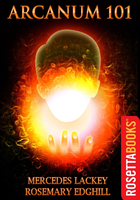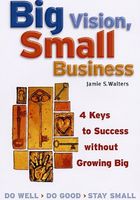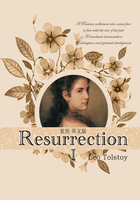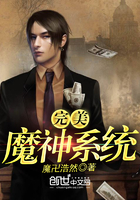The next morning I met Lady Glenmire and Miss Pole setting out on a long walk to find some old woman who was famous in the neighbourhood for her skill in knitting woollen stockings. Miss Pole said to me, with a smile half-kindly and half-contemptuous upon her countenance, "I have been just telling Lady Glenmire of our poor friend Mrs Forrester, and her terror of ghosts. It comes from living so much alone, and listening to the bug-a-boo stories of that Jenny of hers." She was so calm and so much above superstitious fears herself that I was almost ashamed to say how glad I had been of her Headingley Causeway proposition the night before, and turned off the conversation to something else.
In the afternoon Miss Pole called on Miss Matty to tell her of the adventure - the real adventure they had met with on their morning's walk. They had been perplexed about the exact path which they were to take across the fields in order to find the knitting old woman, and had stopped to inquire at a little wayside public-house, standing on the high road to London, about three miles from Cranford. The good woman had asked them to sit down and rest themselves while she fetched her husband, who could direct them better than she could; and, while they were sitting in the sanded parlour, a little girl came in. They thought that she belonged to the landlady, and began some trifling conversation with her; but, on Mrs Roberts's return, she told them that the little thing was the only child of a couple who were staying in the house. And then she began a long story, out of which Lady Glenmire and Miss Pole could only gather one or two decided facts, which were that, about six weeks ago, a light spring-cart had broken down just before their door, in which there were two men, one woman, and this child. One of the men was seriously hurt - no bones broken, only "shaken," the landlady called it; but he had probably sustained some severe internal injury, for he had languished in their house ever since, attended by his wife, the mother of this little girl. Miss Pole had asked what he was, what he looked like. And Mrs Roberts had made answer that he was not like a gentleman, nor yet like a common person; if it had not been that he and his wife were such decent, quiet people, she could almost have thought he was a mountebank, or something of that kind, for they had a great box in the cart, full of she did not know what. She had helped to unpack it, and take out their linen and clothes, when the other man - his twin-brother, she believed he was - had gone off with the horse and cart.
Miss Pole had begun to have her suspicions at this point, and expressed her idea that it was rather strange that the box and cart and horse and all should have disappeared; but good Mrs Roberts seemed to have become quite indignant at Miss Pole's implied suggestion; in fact, Miss Pole said she was as angry as if Miss Pole had told her that she herself was a swindler. As the best way of convincing the ladies, she bethought her of begging them to see the wife; and, as Miss Pole said, there was no doubting the honest, worn, bronzed face of the woman, who at the first tender word from Lady Glenmire, burst into tears, which she was too weak to check until some word from the landlady made her swallow down her sobs, in order that she might testify to the Christian kindness shown by Mr and Mrs Roberts. Miss Pole came round with a swing to as vehement a belief in the sorrowful tale as she had been sceptical before; and, as a proof of this, her energy in the poor sufferer's behalf was nothing daunted when she found out that he, and no other, was our Signor Brunoni, to whom all Cranford had been attributing all manner of evil this six weeks past! Yes! his wife said his proper name was Samuel Brown - "Sam," she called him - but to the last we preferred calling him "the Signor"; it sounded so much better.
The end of their conversation with the Signora Brunoni was that it was agreed that he should be placed under medical advice, and for any expense incurred in procuring this Lady Glenmire promised to hold herself responsible, and had accordingly gone to Mr Hoggins to beg him to ride over to the "Rising Sun" that very afternoon, and examine into the signor's real state; and, as Miss Pole said, if it was desirable to remove him to Cranford to be more immediately under Mr Hoggins's eye, she would undertake to see for lodgings and arrange about the rent. Mrs Roberts had been as kind as could be all throughout, but it was evident that their long residence there had been a slight inconvenience.
Before Miss Pole left us, Miss Matty and I were as full of the morning's adventure as she was. We talked about it all the evening, turning it in every possible light, and we went to bed anxious for the morning, when we should surely hear from someone what Mr Hoggins thought and recommended; for, as Miss Matty observed, though Mr Hoggins did say "Jack's up," "a fig for his heels," and called Preference "Pref." she believed he was a very worthy man and a very clever surgeon. Indeed, we were rather proud of our doctor at Cranford, as a doctor. We often wished, when we heard of Queen Adelaide or the Duke of Wellington being ill, that they would send for Mr Hoggins; but, on consideration, we were rather glad they did not, for, if we were ailing, what should we do if Mr Hoggins had been appointed physician-in-ordinary to the Royal Family? As a surgeon we were proud of him; but as a man - or rather, I should say, as a gentleman - we could only shake our heads over his name and himself, and wished that he had read Lord Chesterfield's Letters in the days when his manners were susceptible of improvement. Nevertheless, we all regarded his dictum in the signor's case as infallible, and when he said that with care and attention he might rally, we had no more fear for him.
But, although we had no more fear, everybody did as much as if there was great cause for anxiety - as indeed there was until Mr Hoggins took charge of him. Miss Pole looked out clean and comfortable, if homely, lodgings; Miss Matty sent the sedan-chair for him, and Martha and I aired it well before it left Cranford by holding a warming-pan full of red-hot coals in it, and then shutting it up close, smoke and all, until the time when he should get into it at the "Rising Sun." Lady Glenmire undertook the medical department under Mr Hoggins's directions, and rummaged up all Mrs Jamieson's medicine glasses, and spoons, and bed-tables, in a free-and-easy way, that made Miss Matty feel a little anxious as to what that lady and Mr Mulliner might say, if they knew. Mrs Forrester made some of the bread-jelly, for which she was so famous, to have ready as a refreshment in the lodgings when he should arrive. A present of this bread-jelly was the highest mark of favour dear Mrs Forrester could confer. Miss Pole had once asked her for the receipt, but she had met with a very decided rebuff; that lady told her that she could not part with it to any one during her life, and that after her death it was bequeathed, as her executors would find, to Miss Matty. What Miss Matty, or, as Mrs Forrester called her (remembering the clause in her will and the dignity of the occasion), Miss Matilda Jenkyns - might choose to do with the receipt when it came into her possession - whether to make it public, or to hand it down as an heirloom - she did not know, nor would she dictate. And a mould of this admirable, digestible, unique bread-jelly was sent by Mrs Forrester to our poor sick conjuror. Who says that the aristocracy are proud? Here was a lady by birth a Tyrrell, and descended from the great Sir Walter that shot King Rufus, and in whose veins ran the blood of him who murdered the little princes in the Tower, going every day to see what dainty dishes she could prepare for Samuel Brown, a mountebank! But, indeed, it was wonderful to see what kind feelings were called out by this poor man's coming amongst us. And also wonderful to see how the great Cranford panic, which had been occasioned by his first coming in his Turkish dress, melted away into thin air on his second coming - pale and feeble, and with his heavy, filmy eyes, that only brightened a very little when they fell upon the countenance of his faithful wife, or their pale and sorrowful little girl.
Somehow we all forgot to be afraid. I daresay it was that finding out that he, who had first excited our love of the marvellous by his unprecedented arts, had not sufficient every-day gifts to manage a shying horse, made us feel as if we were ourselves again. Miss Pole came with her little basket at all hours of the evening, as if her lonely house and the unfrequented road to it had never been infested by that "murderous gang"; Mrs Forrester said she thought that neither Jenny nor she need mind the headless lady who wept and wailed in Darkness Lane, for surely the power was never given to such beings to harm those who went about to try to do what little good was in their power, to which Jenny tremblingly assented; but the mistress's theory had little effect on the maid's practice until she had sewn two pieces of red flannel in the shape of a cross on her inner garment.
I found Miss Matty covering her penny ball - the ball that she used to roll under her bed - with gay-coloured worsted in rainbow stripes.
"My dear," said she, "my heart is sad for that little careworn child. Although her father is a conjuror, she looks as if she had never had a good game of play in her life. I used to make very pretty balls in this way when I was a girl, and I thought I would try if I could not make this one smart and take it to Phoebe this afternoon. I think 'the gang' must have left the neighbourhood, for one does not hear any more of their violence and robbery now."
We were all of us far too full of the signor's precarious state to talk either about robbers or ghosts. Indeed, Lady Glenmire said she never had heard of any actual robberies, except that two little boys had stolen some apples from Farmer Benson's orchard, and that some eggs had been missed on a market-day off Widow Hayward's stall. But that was expecting too much of us; we could not acknowledge that we had only had this small foundation for all our panic. Miss Pole drew herself up at this remark of Lady Glenmire's, and said "that she wished she could agree with her as to the very small reason we had had for alarm, but with the recollection of a man disguised as a woman who had endeavoured to force himself into her house while his confederates waited outside; with the knowledge gained from Lady Glenmire herself, of the footprints seen on Mrs Jamieson's flower borders; with the fact before her of the audacious robbery committed on Mr Hoggins at his own door" - But here Lady Glenmire broke in with a very strong expression of doubt as to whether this last story was not an entire fabrication founded upon the theft of a cat; she grew so red while she was saying all this that I was not surprised at Miss Pole's manner of bridling up, and I am certain, if Lady Glenmire had not been "her ladyship," we should have had a more emphatic contradiction than the "Well, to be sure!" and similar fragmentary ejaculations, which were all that she ventured upon in my lady's presence. But when she was gone Miss Pole began a long congratulation to Miss Matty that so far they had escaped marriage, which she noticed always made people credulous to the last degree; indeed, she thought it argued great natural credulity in a woman if she could not keep herself from being married; and in what Lady Glenmire had said about Mr Hoggins's robbery we had a specimen of what people came to if they gave way to such a weakness; evidently Lady Glenmire would swallow anything if she could believe the poor vamped-up story about a neck of mutton and a pussy with which he had tried to impose on Miss Pole, only she had always been on her guard against believing too much of what men said.
We were thankful, as Miss Pole desired us to be, that we had never been married; but I think, of the two, we were even more thankful that the robbers had left Cranford; at least I judge so from a speech of Miss Matty's that evening, as we sat over the fire, in which she evidently looked upon a husband as a great protector against thieves, burglars, and ghosts; and said that she did not think that she should dare to be always warning young people against matrimony, as Miss Pole did continually; to be sure, marriage was a risk, as she saw, now she had had some experience; but she remembered the time when she had looked forward to being married as much as any one.
"Not to any particular person, my dear," said she, hastily checking herself up, as if she were afraid of having admitted too much; "only the old story, you know, of ladies always saying, 'When I marry,' and gentlemen, 'If I marry.'" It was a joke spoken in rather a sad tone, and I doubt if either of us smiled; but I could not see Miss Matty's face by the flickering fire-light. In a little while she continued -
"But, after all, I have not told you the truth. It is so long ago, and no one ever knew how much I thought of it at the time, unless, indeed, my dear mother guessed; but I may say that there was a time when I did not think I should have been only Miss Matty Jenkyns all my life; for even if I did meet with any one who wished to marry me now (and, as Miss Pole says, one is never too safe), I could not take him - I hope he would not take it too much to heart, but I could not take him - or any one but the person I once thought I should be married to; and he is dead and gone, and he never knew how it all came about that I said 'No,' when I had thought many and many a time - Well, it's no matter what I thought. God ordains it all, and I am very happy, my dear. No one has such kind friends as I," continued she, taking my hand and holding it in hers.
If I had never known of Mr Holbrook, I could have said something in this pause, but as I had, I could not think of anything that would come in naturally, and so we both kept silence for a little time.
"My father once made us," she began, "keep a diary, in two columns; on one side we were to put down in the morning what we thought would be the course and events of the coming day, and at night we were to put down on the other side what really had happened. It would be to some people rather a sad way of telling their lives," (a tear dropped upon my hand at these words) - "I don't mean that mine has been sad, only so very different to what I expected. I remember, one winter's evening, sitting over our bedroom fire with Deborah - I remember it as if it were yesterday - and we were planning our future lives, both of us were planning, though only she talked about it. She said she should like to marry an archdeacon, and write his charges; and you know, my dear, she never was married, and, for aught I know, she never spoke to an unmarried archdeacon in her life. I never was ambitious, nor could I have written charges, but I thought I could manage a house (my mother used to call me her right hand), and I was always so fond of little children - the shyest babies would stretch out their little arms to come to me; when I was a girl, I was half my leisure time nursing in the neighbouring cottages; but I don't know how it was, when I grew sad and grave - which I did a year or two after this time - the little things drew back from me, and I am afraid I lost the knack, though I am just as fond of children as ever, and have a strange yearning at my heart whenever I see a mother with her baby in her arms. Nay, my dear" (and by a sudden blaze which sprang up from a fall of the unstirred coals, I saw that her eyes were full of tears - gazing intently on some vision of what might have been), "do you know I dream sometimes that I have a little child - always the same - a little girl of about two years old; she never grows older, though I have dreamt about her for many years. I don't think I ever dream of any words or sound she makes; she is very noiseless and still, but she comes to me when she is very sorry or very glad, and I have wakened with the clasp of her dear little arms round my neck. Only last night - perhaps because I had gone to sleep thinking of this ball for Phoebe - my little darling came in my dream, and put up her mouth to be kissed, just as I have seen real babies do to real mothers before going to bed. But all this is nonsense, dear! only don't be frightened by Miss Pole from being married. I can fancy it may be a very happy state, and a little credulity helps one on through life very smoothly - better than always doubting and doubting and seeing difficulties and disagreeables in everything."
If I had been inclined to be daunted from matrimony, it would not have been Miss Pole to do it; it would have been the lot of poor Signor Brunoni and his wife. And yet again, it was an encouragement to see how, through all their cares and sorrows, they thought of each other and not of themselves; and how keen were their joys, if they only passed through each other, or through the little Phoebe.
The signora told me, one day, a good deal about their lives up to this period. It began by my asking her whether Miss Pole's story of the twin-brothers were true; it sounded so wonderful a likeness, that I should have had my doubts, if Miss Pole had not been unmarried. But the signora, or (as we found out she preferred to be called) Mrs Brown, said it was quite true; that her brother-in-law was by many taken for her husband, which was of great assistance to them in their profession; "though," she continued, "how people can mistake Thomas for the real Signor Brunoni, I can't conceive; but he says they do; so I suppose I must believe him. Not but what he is a very good man; I am sure I don't know how we should have paid our bill at the 'Rising Sun' but for the money he sends; but people must know very little about art if they can take him for my husband. Why, Miss, in the ball trick, where my husband spreads his fingers wide, and throws out his little finger with quite an air and a grace, Thomas just clumps up his hand like a fist, and might have ever so many balls hidden in it. Besides, he has never been in India, and knows nothing of the proper sit of a turban."
"Have you been in India?" said I, rather astonished.
"Oh, yes! many a year, ma'am. Sam was a sergeant in the 31st; and when the regiment was ordered to India, I drew a lot to go, and I was more thankful than I can tell; for it seemed as if it would only be a slow death to me to part from my husband. But, indeed, ma'am, if I had known all, I don't know whether I would not rather have died there and then than gone through what I have done since. To be sure, I've been able to comfort Sam, and to be with him; but, ma'am, I've lost six children," said she, looking up at me with those strange eyes that I've never noticed but in mothers of dead children - with a kind of wild look in them, as if seeking for what they never more might find. "Yes! Six children died off, like little buds nipped untimely, in that cruel India. I thought, as each died, I never could - I never would - love a child again; and when the next came, it had not only its own love, but the deeper love that came from the thoughts of its little dead brothers and sisters. And when Phoebe was coming, I said to my husband, 'Sam, when the child is born, and I am strong, I shall leave you; it will cut my heart cruel; but if this baby dies too, I shall go mad; the madness is in me now; but if you let me go down to Calcutta, carrying my baby step by step, it will, maybe, work itself off; and I will save, and I will hoard, and I will beg - and I will die, to get a passage home to England, where our baby may live?' God bless him! he said I might go; and he saved up his pay, and I saved every pice I could get for washing or any way; and when Phoebe came, and I grew strong again, I set off. It was very lonely; through the thick forests, dark again with their heavy trees - along by the river's side (but I had been brought up near the Avon in Warwickshire, so that flowing noise sounded like home) - from station to station, from Indian village to village, I went along, carrying my child. I had seen one of the officer's ladies with a little picture, ma'am - done by a Catholic foreigner, ma'am - of the Virgin and the little Saviour, ma'am. She had him on her arm, and her form was softly curled round him, and their cheeks touched. Well, when I went to bid good-bye to this lady, for whom I had washed, she cried sadly; for she, too, had lost her children, but she had not another to save, like me; and I was bold enough to ask her would she give me that print. And she cried the more, and said her children were with that little blessed Jesus; and gave it me, and told me that she had heard it had been painted on the bottom of a cask, which made it have that round shape. And when my body was very weary, and my heart was sick (for there were times when I misdoubted if I could ever reach my home, and there were times when I thought of my husband, and one time when I thought my baby was dying), I took out that picture and looked at it, till I could have thought the mother spoke to me, and comforted me. And the natives were very kind. We could not understand one another; but they saw my baby on my breast, and they came out to me, and brought me rice and milk, and sometimes flowers - I have got some of the flowers dried. Then, the next morning, I was so tired; and they wanted me to stay with them - I could tell that - and tried to frighten me from going into the deep woods, which, indeed, looked very strange and dark; but it seemed to me as if Death was following me to take my baby away from me; and as if I must go on, and on - and I thought how God had cared for mothers ever since the world was made, and would care for me; so I bade them good-bye, and set off afresh. And once when my baby was ill, and both she and I needed rest, He led me to a place where I found a kind Englishman lived, right in the midst of the natives."
"And you reached Calcutta safely at last?"
"Yes, safely! Oh! when I knew I had only two days' journey more before me, I could not help it, ma'am - it might be idolatry, I cannot tell - but I was near one of the native temples, and I went into it with my baby to thank God for His great mercy; for it seemed to me that where others had prayed before to their God, in their joy or in their agony, was of itself a sacred place. And I got as servant to an invalid lady, who grew quite fond of my baby aboard-ship; and, in two years' time, Sam earned his discharge, and came home to me, and to our child. Then he had to fix on a trade; but he knew of none; and once, once upon a time, he had learnt some tricks from an Indian juggler; so he set up conjuring, and it answered so well that he took Thomas to help him - as his man, you know, not as another conjuror, though Thomas has set it up now on his own hook. But it has been a great help to us that likeness between the twins, and made a good many tricks go off well that they made up together. And Thomas is a good brother, only he has not the fine carriage of my husband, so that I can't think how he can be taken for Signor Brunoni himself, as he says he is."
"Poor little Phoebe!" said I, my thoughts going back to the baby she carried all those hundred miles.
"Ah! you may say so! I never thought I should have reared her, though, when she fell ill at Chunderabaddad; but that good, kind Aga Jenkyns took us in, which I believe was the very saving of her."
"Jenkyns!" said I.
"Yes, Jenkyns. I shall think all people of that name are kind; for here is that nice old lady who comes every day to take Phoebe a walk!"
But an idea had flashed through my head; could the Aga Jenkyns be the lost Peter? True he was reported by many to be dead. But, equally true, some had said that he had arrived at the dignity of Great Lama of Thibet. Miss Matty thought he was alive. I would make further inquiry.















